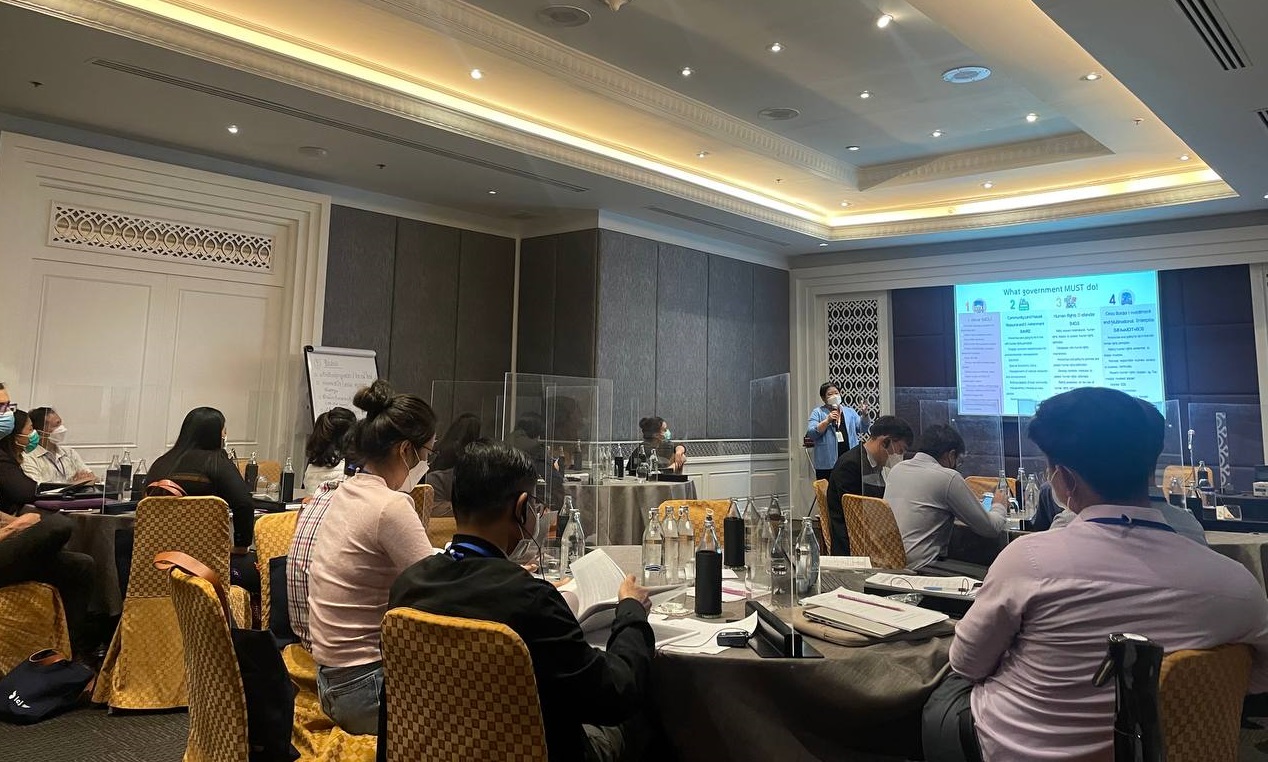Cases of alleged human rights abuses by Thai companies operating abroad are not being effectively investigated, according to participants at a consultative dialogue between human rights lawyers from Cambodia, Lao PDR, Myanmar, Thailand and Vietnam and representatives of the National Human Rights Commission of Thailand (NHRCT) and Thailand’s National Action Plan on Business and Human Rights (NAP) Implementation Monitoring Sub-Committee on 9 September 2022.
The meeting, hosted by the International Commission of Jurists (ICJ), was convened to explore ways to improve the complaints mechanism in Thailand to ensure effective redress to victims of alleged business human rights abuses committed when companies act in other countries.
Nareeluc Pairchaiyapoom, Commissioner of the NAP Implementation Monitoring Sub-Committee explained that her agency had the authority to provide and recommendations to address allegations of human rights abuses caused or contributed to by businesses in Thailand or by Thai transnational corporations. However, the Sub-Committee lacked resources to address these complaints, which would need to be acted by responsible government ministries.
Satthawut Chankhan from the NHRCT, explained that over the past few years, human rights abuses involving Thai companies abroad had been documented and submitted to the NHRCT. These include allegations relating to forced evictions, poorly planned resettlement and relocation, environmental destruction, unsustainable exploitation of natural resources, some of which created threats to indigenous peoples’ livelihood, culture and traditions. Thai companies are either the main investor or have committed to buying the majority of products.
The NHRCT had investigated at least nine cases relating to Thai outbound investments in neighbouring countries. Of nine cases, four projects are located in Myanmar, three in Lao PDR, and two in Cambodia.
Submitted to the NHRCT included the matter related to land concessions in Cambodia’s Koh Kong province given to two Cambodian companies with the majority of their shares owned by a sugarcane company registered in Thailand. In the concession areas, government officials allegedly conducted forced eviction of local villagers to make way for the plantation. There was also a complaint submitted by communities in Thailand’s Nan province regarding the transboundary impacts of the Hongsa Power Plant in Lao PDR and its transmission lines. Transmission lines were allegedly built through reserved forest areas, allegedly damaging the sites upon which local communities relied for food and livelihood. Another complaint that was submitted by communities against a Thai-owned mining company registered in Myanmar. It was reported that wastewater discharge and flooding from the mine had damaged agricultural plantations, houses in nearby villages, and surrounding creeks.
While the NHRCT Commission found several instances of human rights in extraterritorial cases, it was only able to issue recommendations to the government and companies to abide by and follow the UN Guiding Principles on Business and Human Rights. The investigations into some cases were suspended because the issues were submitted to Thai courts.
Some participants pointed out NHRCT had been rejecting investigating cases relating to outbound investments by Thai companies in neighbouring countries due to the absence of express powers under Thai law.
Further reading
Thai Companies in Southeast Asia: Access to Justice for Extraterritorial Human Rights Harms
Contact
Sanhawan Srisod, Associate International Legal Adviser, ICJ Asia Pacific Programme; e: sanhawan.srisod@icj.org





